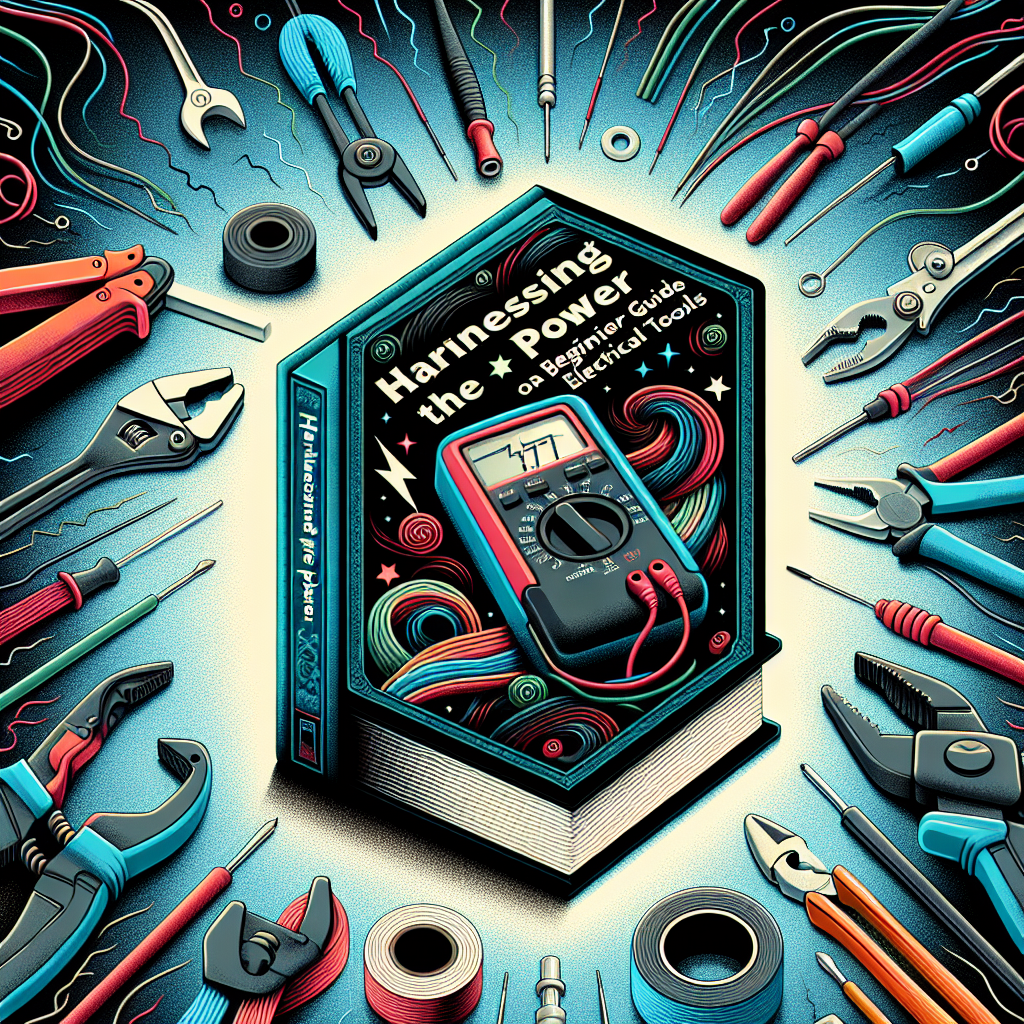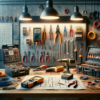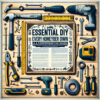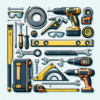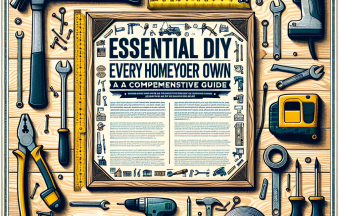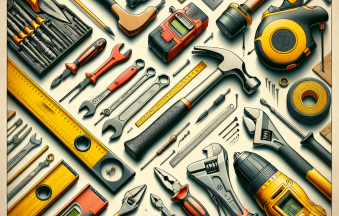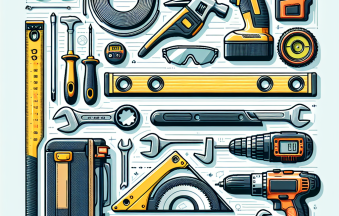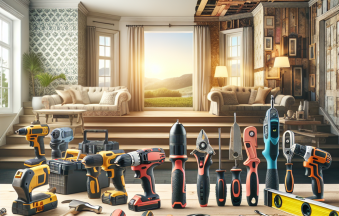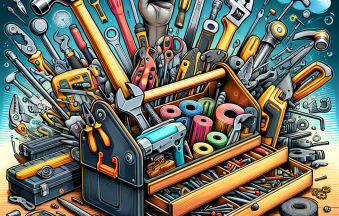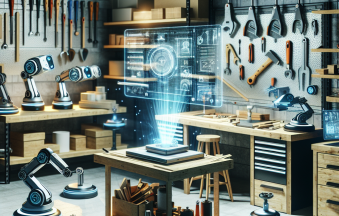Whether you are an experienced craftsman or a beginner undertaking your first endeavor, possessing the appropriate DIY tools is crucial. This guide will assist you in comprehending the different categories of tools you might require, ranging from fundamental household equipment to specialized measuring instruments. Are you prepared to jump in? Let’s investigate!
Household Equipment
Your dwelling is your masterpiece, and the proper equipment significantly impacts the outcome. Essential tools such as hammers, screwdrivers, and pliers constitute the backbone of any DIY toolkit. A quality hammer not only provides the capability to drive nails but also enables you to extract them when required. Seek out a lightweight, well-designed model that feels reassuring in your grip.
Screwdrivers, conversely, are available in various shapes and dimensions, including flathead and Phillips varieties. Contemplate investing in a magnetic toolset for effortlessly managing your screws and bits. Incorporating a robust utility knife can also greatly improve your efficiency in slicing through diverse materials, from cardboard to drywall.
Construction Supplies
No endeavor is considered finished without the requisite construction supplies. Whether you are assembling a new shelf or putting up a wall, you will require an assortment of materials. Wood, drywall, and concrete are typical items found on the DIY shopping list. Ensure you select the appropriate type of wood for your task; for example, pine is suitable for indoor projects due to its lightweight and economical characteristics, whereas oak is more appropriate for furniture.
Remember to consider adhesives and sealants! Multi-purpose construction adhesive is an essential item for bonding materials, while caulking is ideal for forming seals in kitchens and bathrooms, helping to avert leaks and drafts.
Electrical Tools
Electrical devices are vital when handling assignments that involve any wiring or installation of fixtures. A multi-meter is indispensable for checking voltage and continuity, guaranteeing your projects are secure and operational. Always select a non-contact voltage tester before commencing an electrical task to ensure that wires are not live.
Don’t overlook the significance of a dependable pair of wire strippers and crimpers. Properly preparing and joining wires can mean the difference between a task completed successfully and one that leads to frustration.
Hardware & Fasteners
Your DIY toolbox is incomplete without a variety of hardware and fasteners. From screws and nuts to bolts and anchors, these components play an essential role in your projects. A dedicated storage solution for fasteners will keep your projects organized and manageable.
When choosing fasteners, always take into account the weight and material of your project. For instance, when dealing with heavy shelving, utilize lag screws or toggle bolts for enhanced stability. Likewise, select stainless steel options for outdoor applications to prevent rust and corrosion.
Kitchen & Bath
Renovating kitchens and bathrooms can greatly increase your property’s worth. Tools specific to this domain include tile cutters, plumbing snakes, and caulking guns. A tile cutter allows you to tailor tiles to fit impeccably in your chosen area, while a plumbing snake can assist you in resolving clogs in sinks or toilets.
Investing in a quality caulking gun is also advantageous for sealing spaces around sinks and tubs; this can enhance both appearance and practicality. Ensure you opt for caulking that is resistant to mold to extend the durability of your application.
Light Bulbs & LEDs
Lighting can transform the mood of any space, and understanding your lighting choices is vital. LED bulbs have gained popularity due to their energy efficiency and longevity. Be sure to investigate terms like lumens and color temperature, as these will assist you in creating your desired ambiance.
Consider utilizing motion-sensor lights for outdoor areas to improve safety and convenience. These energy-efficient solutions not only illuminate your path but also help decrease energy expenses.
Lighting & Fans
A well-illuminated area is essential in any home, and ceiling fans can enhance your lighting while promoting air circulation. Tools such as socket wrenches are crucial for installing or replacing ceiling fans, ensuring that they are securely anchored and operate properly.
Be cautious about balancing your fan after installation. Unbalanced ceiling fans can wobble, leading to deterioration and potential safety risks. Achieving symmetry not only enhances functionality but also adds to the aesthetic appeal.
Measuring Instruments
No DIY endeavor can be successfully accomplished without accurate measurements. Invest in dependable measuring instruments such as tape measures, laser levels, and square tools. A digital laser level provides swift readings and can save you time, especially in expansive areas.
Don’t underestimate the utility of a chalk line; it’s vital for marking long, straight lines on surfaces like drywall or concrete. This can simplify tasks such as painting or installing flooring.
Paint & Wall Supplies
A fresh layer of paint can revitalize any room. Tools for painting include brushes, rollers, and painter’s tape. A high-grade paint roller with a thick nap is optimal for covering large spaces swiftly, while a smaller brush is great for meticulous corners and edges.
Painter’s tape is crucial for achieving sharp lines. When applying, press the tape down firmly to prevent paint from seeping underneath. Additional items like drop cloths and paint trays can further safeguard your home and enhance your painting workflow.
With these categories of DIY tools at your fingertips, you’ll be well-equipped to address a wide array of home enhancement projects effectively. Keep in mind that investing in quality tools not only simplifies your tasks but also ensures that your projects withstand the test of time.

